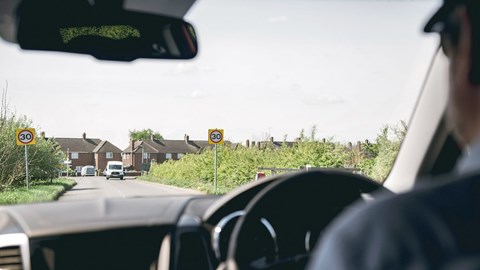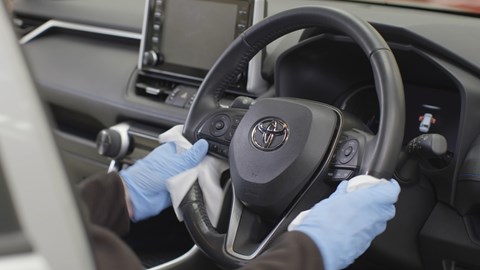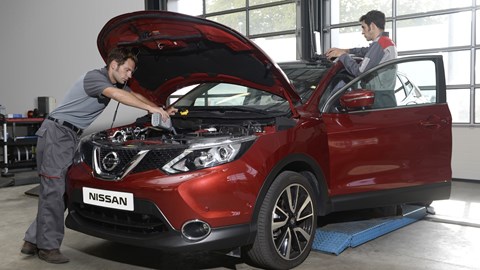► How to stay safe in post-lockdown times
► What can and should you do about maintaining your car?
► Should you be driving, and how far?
The UK is currently on a path out of lockdown following a third stint of Covid-19 restrictions that were in place from the beginning of January until April 2021. With infections and hospitalisations down and the vaccination programme reaching more people by the day there are reasons to be positive, but things haven’t totally returned to normal just yet.
Outdoor attractions are reopening where possible and pubs and restaurants are able to start serving once again, with changes to how and where you can go in such places coming as summer progresses. This is all following a lockdown that was almost as strict as the first one that came at the start of the coronavirus pandemic in March 2020.
While we are no longer advised, or legally obliged, to stay and work at home, there are still restrictions on what you can do and where you can go – the pathway is not the same in Wales and Scotland, for example.
The events of the pandemic period have had a big impact on our cars and how we interact with them. A survey by Nextbase has shown that many drivers lost confidence in their abilities because of the enforced departure from routine – 46% said they were anxious about getting back behind the wheel and 47% confessed they would probably benefit from some lessons after the break from driving.
Looked at the other way around, that also gives reason to worry about the ability of other road users. If you don't have a dashcam, now might be a good time to consider purchasing one – not only to assist in the event of an incident, but having one on display could help deter potential aggressive behaviour from other road users in the first place.
Check out the best and latest dash cams over on Car magazine Products
How far can I drive?
The guidance remains 'walk or cycle where possible' and the gantries above motorways are still advising you to restrict your travel. However, officially there is no restriction on how far you can drive in England, with no rulings requiring you to stay local for exercise or visiting friends and family. There are several other factors that might impact the distance you can drive, though.
Overnight stays are not permitted in private households in England until 17 May and all gatherings must adhere to the Rule of Six, where six people from any number of households are allowed to meet up. Alternatively, two households consisting of any number of people can meet. However, all this has to take place outside.

You can stay in self-contained accommodation – at a campsite or in a cottage, for example – but hotels are still closed. This limits your options for staying somewhere, so it may be that how far you can go is restricted by having to return home again at the end of the day. This is the case in England, Scotland and Wales, and there are currently no restrictions on driving in between the three countries.
The guidance on taking exercise in your local area was in part aimed at reducing pressure on the emergency services and breakdown companies. Staff might still be off because they are self-isolating, which means there might be fewer recovery vehicles on the road. It might take longer for you to get rescued as a result.
Further reading: coronavirus and the car world
Who can I get in a car with?
Who you can share a car with is a little complicated, depending on which stage of lockdown easing we are at. At a time when you are not allowed into people’s houses you are not allowed to share an enclosed car with anyone who you do not live with, or is not part of your support bubble. The advice and guidance are the same in England, Scotland and Wales.
One exception to this is if one person in the car is working. This means that you can get in a taxi, have driving lessons or take your driving test. It doesn’t mean that you can car-share on a commute, though, unless that person is in your support bubble or if the journey is 'reasonably necessary as part of your work'.

Whoever you are sharing a car with, the advice is to keep windows open to maintain air flow.
When in a taxi or having a driving lesson, you should also wear a face covering. Taxi passengers should follow the driver’s guidance on where they want you to sit – they may ask you to sit in the back left seat to put as much space as possible between the two of you.
One other exemption to this is where a vehicle is 'open air', or a convertible in more usual terms. In this case you need only adhere to the outdoor gathering limits, so drivers of cars that can drop the roof are able to head out with people from other households even if they are not in their support bubble.
Cleaning tips
You shouldn’t be sharing your car with anybody but your immediate family and your support bubble. However, it’s still good practice to ensure your car is as clean as it can be.

That means, of course, cleaning your hands thoroughly with soap and hot water or an alcohol-based hand sanitiser before you drive.
You should also clean the touch points in your car – everywhere your hands go before, during or after you drive. That’s more surfaces than you may think:
- Door handles (interior and exterior)
- Steering wheel
- Gearlever
- Column stalks
- Dashboard surface
- Infotainment screen
- Armrests
- Fuel filler flap and cap
- Seat controls
- Window switches
- Air vents
Most surfaces can easily be sanitised with antibacterial wipes – these are gentle enough for most plastic and leather, though fabric seats or alcantara might require specialist cleaners.
Car washes have now reopened, both manned and automatic ones, so you can take your car to be cleaned once again should you wish.
Can I get my car fixed or serviced, or get an MoT?
All garages are allowed to reopen and most of the major retailers have recalled all of their technicians from furlough now, so you should be able to get work done on your car if you need it.
Coronavirus - how the car industry is reacting
In March 2020 the government announced that cars that were due an MoT could get an extension. This continued up until 1 August, and any car that was due up until that date could delay its MoT for six months.

You don’t need to revert back to the original date that your car was due to go through its MoT, and the test will be valid for a year from the point at which it was tested. If it was due in April and you got it tested in October 2020, then you can get it tested in October 2021.
However, there is merit in getting it tested early this year – lots of owners will have taken advantage of the extension, or been forced into delaying their car’s MoT. This means garages are set to be very busy later in the year, so it is worth bringing your car’s MoT forward to the summer if you can, to take advantage of what could be quieter months.
Servicing schedules may have changed as well. Cars’ service intervals are brought about by miles travelled or on a timed basis. Lockdown threw people’s mileages wildly out of their normal pattern so cars that were due a service may have gone longer than previously expected. It is worth talking to your garage and seeing what time would be a mutually beneficial one when it comes to a service.
More information on suspended MOTs here
What about road tax and insurance?
Road tax was not changed by lockdown. This means that, as ever, if your car is on a public highway it needs to be taxed and insured. Of course, if you’re able to park your vehicle off-road and you know you won’t be using it, you can declare it SORN on the DVLA website.
While some insurance companies gave customers a refund in the first lockdown, there has been little sign of similar initiatives since. Insurance companies have since warned those due for renewal that their cover should be based on their normal mileage, not their lockdown-induced essential mileage.
I’m having financial trouble and can’t make my car finance payments
First of all, you’re not alone. Car finance companies are well geared up to assist people during these times – with many people on reduced pay or awaiting bailout payments, there are plenty struggling.
Your specific circumstances may vary but you’re likely to find your finance company is willing to discuss various options, including payment holidays.
Get more info on car finance payment holidays here